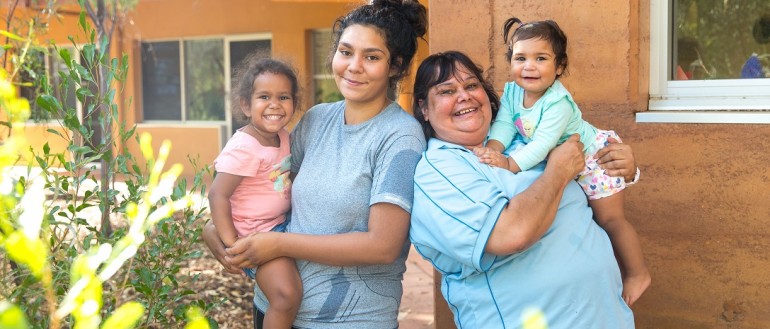
Of the Indigenous Territorians with diabetes, females were the highest proportion (26.1 per cent), in contrast with the non-Indigenous, where the condition was most prevalent among men (4.8 per cent). Photo: Menzies School of Health Research.
From this week, as part of a broader inquiry into all forms of diabetes, a committee will visit the Northern Territory for three public hearings with invested stakeholders.
Committee chair Dr Mike Freelander said the group was looking across type 1, 2, gestational diabetes and other rare forms such as cystic fibrosis-related varieties.
“This week the committee will hear from a range of stakeholders, including Aboriginal health services and peak bodies; doctors and other health professionals from Alice Springs Hospital and Royal Darwin Hospital; and The Menzies School of Health Research.
“The committee looks forward to speaking with these stakeholders to better understand diabetes prevention, diagnosis and management in regional and remote locations.”
An inquiry into diabetes was adopted by the Standing Committee on Health, Aged Care and Sport on 25 May after it was referred to by Health and Aged Care Minister Mark Butler.
They have been tasked with investigating:
- The causes of diabetes (type 1, type 2 and gestational) in Australia, including risk factors such as genetics, family history, age, physical inactivity, other medical conditions and medications used
- New evidence-based advances in the prevention, diagnosis and management of diabetes, in Australia and internationally
- The broader impacts of diabetes on Australia’s health system and economy
- Any interrelated health issues between diabetes and obesity in Australia, including the relationship between type 2 and gestational diabetes and obesity, the causes of obesity and the evidence base in the prevention, diagnosis and management of obesity
- The effectiveness of current Australian Government policies and programs to prevent, diagnose and manage diabetes.
There is limited reliable information from the NT population on the prevalence of chronic diseases such as diabetes. A 2022 study found the burden of diabetes in the remote Aboriginal population of the region to be among the highest in the world.
“Strengthened systems of care and public health prevention strategies, developed in partnership with Aboriginal communities, are needed,” it states in its conclusion.
The most recent fact sheet by NT Health, in 2019, backs this claim, showing diabetes to be five times more common among Indigenous Territorians (22.7 per cent) than non-Indigenous Territorians (4.4 per cent).
That prevalence is higher than the national rate (12.6 per cent), while the non-Indigenous prevalence was similar to the national prevalence (4.3 per cent) and had not changed significantly over two decades.
But throughout 2019, almost one in five Territorian Indigenous men (19.1 per cent) and one in four women (23.7 per cent) had diabetes. There was a higher crude prevalence (9-14x) in the younger population (18-49) compared with non-Indigenous adults of the same age group.
Submissions closed in August, but hearings will be held in the region throughout March.
Deputy chair Melissa McIntosh said the committee would also hear from individuals with lived experience of diabetes.
“We anticipate that this will offer a better understanding of the daily realities of living with diabetes in the Northern Territory, including interactions with the healthcare system,” she said.
The currently listed public hearing details are:
- Date: Thursday, 7 March, 2024
- Time: 8:45 am – 5:30 pm ACST (Darwin time)
- Location: Dining Room, Parliament House, 15 Mitchell Street, Darwin City
- Date: Friday, 8 March, 2024
- Time: 8:30 am – 10:30 am ACST (Darwin time)
- Location: Dining Room, Parliament House, 15 Mitchell Street, Darwin City
Programs for the hearings are available on the inquiry website, and a live audio stream of the hearings is on the APH website.


